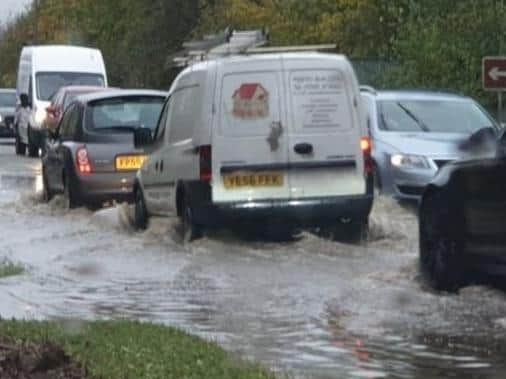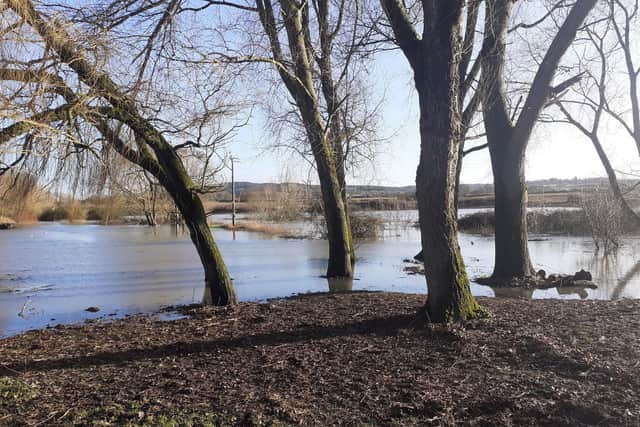Dodgy drains were NOT to blame for massive flooding in Milton Keynes
and live on Freeview channel 276
The report, published this week, states that even drains operating at their optimal level would not have coped with the deluge of rainfall at that time.
It was found, however, that one sewer in Newport Pagnell was blocked, and this “would not have helped the situation”.
Advertisement
Hide AdAdvertisement
Hide AdBut flooding would still have been expected, the report states.


It reveals that Milton Keynes had never previously experienced rainfall of that intensity. At its peak, rain was falling at 115mm per hour, causing unprecedented surface water levels, which experts said MK only had a 1 in 800 chance of experiencing.
The resulting flooding affected1000 houses and businesses. Roads were closed, utilities disrupted, and a respite centre was set up for families and their pets flooded out of their homes. Even MK hospital was forced to cancel operations because parts of the building were flooded out.
Afterwards, councillors called for an independent report in response to public concern that more could have been done to prevent and respond to the flooding
Advertisement
Hide AdAdvertisement
Hide AdWhile the report praises MK Council for the way it responded to the emergency situation, it found that better communication and systems between the council and its partners could have led to the rainfall being classed as a ‘major incident’. This could have ensured more co-ordinated response efforts.


The council has responded to recommendations and is taking action. This consists of improved communication, investment in asset management, research into flood prevention for properties below road level, and greater consideration of flood risks when planning future development.
The council is also investing £165m in improving council housing and will use some of this money to build flood resilience into these homes. The council is also working with flood partners across the area to ensure that private owners have the best information on how to make their homes safer.
Councillor Emily Darlington, Cabinet member for public realm said: “Climate change means that we’re likely to experience more severe weather, so it’s important that we learn the lessons from this report and work with all communities and partners to build flood resilience and mitigate effects.”